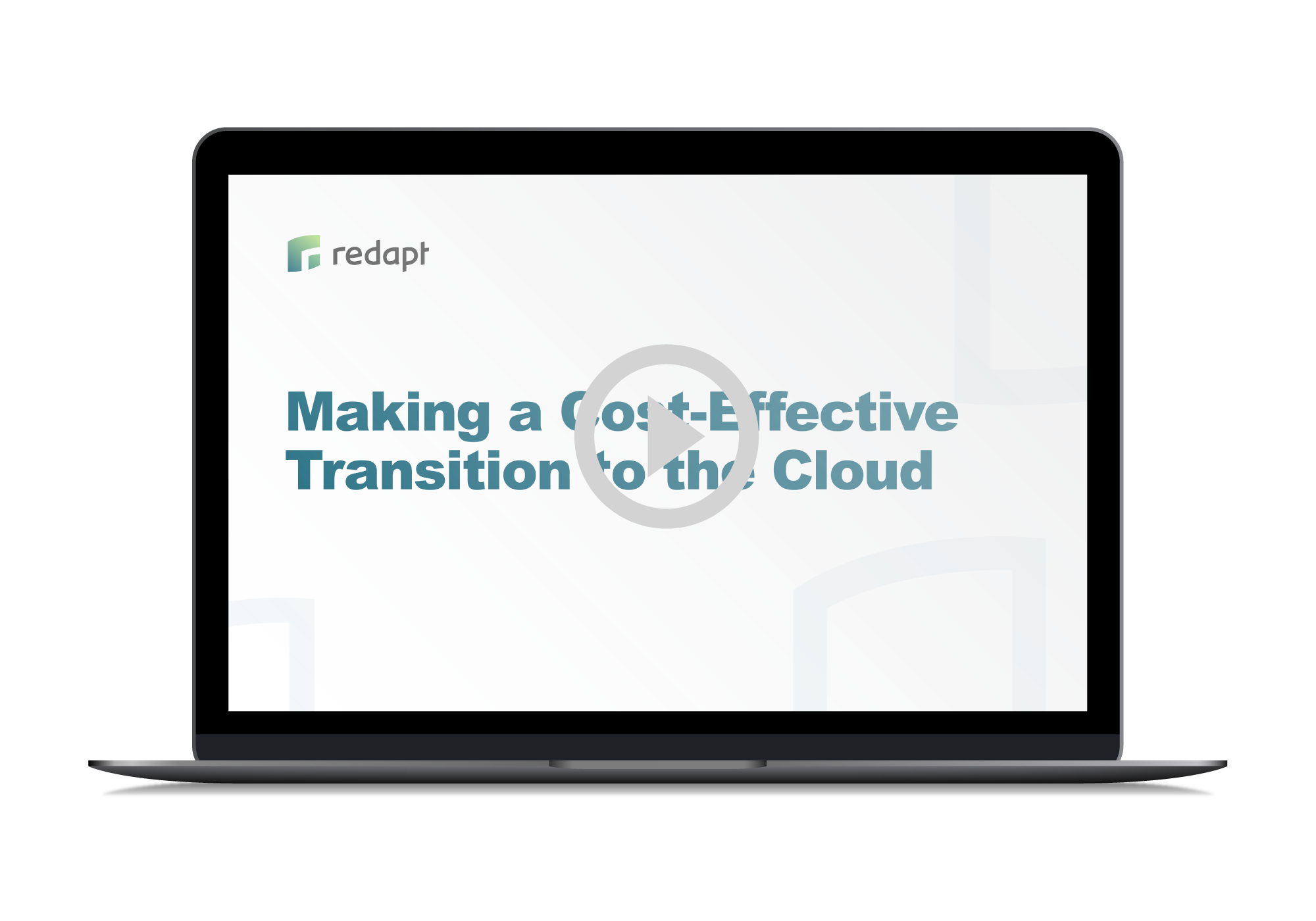Artificial Intelligence is heating up, and the business applications will blow your mind. But according to Raghu Subramanian, Corporate VP of Emerging Technologies at Juniper Networks, this is just the beginning.
Subramanian, who currently spends half time at Juniper and half time at the AI lab at Stanford University as a visiting researcher is exploring practical applications of AI in business.
“I wanted to see what Juniper could do with AI technologies,” said Subramanian. "I was convinced there were important uses of AI in the company. I wanted to prove it could be done."
For Juniper Networks—an industry leader in automated, scalable and secure networks—the AI journey began with a simple business problem. Sales cycles at Juniper were taking about 65 days—far longer than expected. So, they did the research to find out why.
“The primary reason was that the account manager did not have the information to effectively communicate responses to customer questions at the first face-to-face meeting,” said Subramanian. “This added days or weeks of follow up over email and phone.”
Empowering the Sales Force
Behind the scenes, sales staff were frantically firing off emails to track down answers to client questions. The reason? There was no single source of information. As with many organizations, information at Juniper was contained in a variety of systems owned by a variety of departments. ‘Let me get back to you’ was a common but undesirable response.
“They would go and contact a technical specialist to ask a question; the specialist had to look in different places to accumulate that information and relay it to the account manager who then set up another meeting with the customer to convey that information,” said Subramanian.
It could take up to a week to answer a question, and many of the questions, they found, were about basic information such as whether a particular feature was supported on a particular platform or the status of an order.
“Ask yourself how many silly questions go around for which the answer could be in a database,” said Subramanian. “Somebody sends an email to somebody, that person sends it to someone else and CCs others, then we have a cascading CC list. It’s all communicated by email and bouncing around like pebbles rattling in your skull. People have to wait up to a week to get an answer.”
Delays matter to the customer. Personal technologies like Siri and Alexa make it easy to get answers to personal questions, but not company-specific questions. Who is the partner for this account? What’s the status of this sales order? Is this feature on the roadmap? These kinds of questions could be answered simply by a Siri-like app customized to the company’s needs.
“I figured just cut all the noise and give a simple voice app that can answer all the questions that people want,” said Subramanian.
The solution, he realized, was an intelligent AI entity. That’s where Redapt came in.
Redapt, well-known for its expertise in intelligent applications, had recently formed a new offering that combined chatbot technology with AI and Machine Learning. The advanced chatbot—called Redapt SmartBot—would give companies a Siri-like app that engages customers or employees through voice and text in automated two-way communication.
“The intent is to unlock silos of information within an organization and provide that data intelligently in the form of answers to questions,” said Vishnu Arunachalam, director of modern applications at Redapt. “It empowers customers or employees with access to data or details when and where they need it, through the channels they use most.”
A SmartBot was exactly what Subramanian had in mind.
Hackathons as Rapid Innovation
Subramanian had the right idea—and knew that Juniper could potentially save millions of dollars through a chatbot tool—but he didn’t yet have a full picture.
“I roughly knew what I wanted, but I didn’t have a 97 page requirements document of what things would look like,” said Subramanian. “If you show me something I can react to it, and you can fix it and I can react again.”
Redapt used a hackathon approach to helping Juniper refine how best to solve its problem of quick, easy access to information. It’s a technique they have used for many clients to provide rapid iterations in order to give shape to an idea.
“They came over for four or five days and we just kept cycling though changes. We were spinning versions every half an hour…let’s try this, how does it look, and so on. That’s what it takes, really, to get things going fast,” said Subramanian.
The team started with a narrow focus on two questions to prove the concept, building a foundation in which future questions could be added easily.
“Our hackathon approach—essentially agile product development—is a fast way to get a project off the ground. It’s great because you have the customer right there giving you rapid feedback,” said Evan Chamberlain of Redapt who ran the Juniper Hackathon.
It was this partnership between Redapt and Juniper, according to Subramanian, that set the foundation for a successful SmartBot development that would address Juniper’s needs.
“They knew what they were doing. We knew roughly what we wanted. That was the best part of the experience…and suddenly we had an app that was beta testing. That's how good things begin.”
Natural Language and Machine Learning
The result of the partnership between Juniper and Redapt was a smartphone app that enables Juniper account managers to get critical information on-the-go. The application named QUIN (short for Questions Answered Instantly) is a voice-enabled, question-answering AI agent—accessible on iPhones and Androids. Think Siri for business.
Simply put, QUIN is an account manager’s digital sales assistant.
“Whether an account manager is driving to a meeting or talking with a client, the goal was to make it as seamless as possible for someone to get the information they need,” said Subramanian. “Just as the customer is asking a question, the account manager can simply ask that question of the sales assistant.”
Making this happen seamlessly is a little more complicated. The challenge is that people ask questions in different ways. In order to provide a natural conversation experience—and thereby enable a quick conversation on the fly— Redapt incorporated a number of newer tools from Microsoft, including Custom Speech Service, Language Understanding Intelligent Service (LUIS), and Bing Speech API.
This technology allows a SmartBot to process natural language to overcome speech recognition barriers (such as speaking style, vocabulary, and background noise), understand the intent of the question rather than just the words, transcribe voice to text, and read back query results.
“The beauty of this technology is that you don’t have to ask a question in a specific way,” said Arunachalam. “Using a cognitive service, you can ask questions in different ways and train it to handle different types of questions. For example, saying ‘give me the summary’ after previously asking a question about health, the cognitive service will know you want the health summary from last week.”
For Juniper, as with most businesses, natural conversation is largely about the intent of the question.
“We speak 30% Juniper language: names of products, protocols, none of which are in a standard English dictionary,” said Subramanian. “You have to augment your sense of language. The cognitive service will understand the intent of the particular question, will check if it’s the right intent, and if so it will call into the APIs internally and get the right information right now.”
Admittedly though, QUIN has its limitations, as Subramanian jokingly reminds his team.
“We have to caution our sales engineers that this is not Alexa or Siri, this is not their chat buddy—it’s there to answer business questions. So, don’t make snide remarks, don’t ask random questions…if you want somebody to commiserate with after a tough day, that’s not this.”
Unlocking Silos of Information
Where does all that information come from? Simple answers are often stored digitally somewhere in an organization, but may be difficult to find. Different departments maintain different information, often in different systems.
These silos of information used to be problematic, but the modern data technology used by Redapt can reach into a variety of systems and resources to seek the right answer. The SmartBot interface provides a natural way of querying that information.
The first phase of Junipers AI application involved information from a public source. The second phase is information is pulled from various internal systems.
“We first built it around a certain set of features, the typical questions asked of Sales on a daily basis,” said Subramanian. “Next, we enabled broader questions like what is the status of the order from the project applications, or is it globally compliant for me to sell SKU #X in Germany.”
QUIN looks at internal applications, determines the answer, and comes back with information or a yes or no. It may be information that’s available on the website, but it’s not convenient for an account manager to stop and try to locate that information on the site.
“We’re integrating with other applications and data sources, including order information, compliance information, account management information, and so on,” said Subramanian. “It’s a 360-degree view from an account executive perspective while marching into a conversation.”
Millions in Savings
Nearly a year ago, Subramanian presented the concept of an artificial intelligence chatbot in front of Juniper’s Sales team. He pulled up a prototype he created to answer only two questions, he warned the audience that it was a fake app just to show what the company might do with AI.
“I asked it a canned question, and it gave me back a canned answer. There were 700 people in the room and they all stood and gave me a standing ovation. They wanted to know when they could have it.”
Since then, the benefits to account managers of easily querying countless sources of information through a mobile app have been obvious to Subramanian.
“They don’t have to do all this preparation up front, they can basically ask all these questions while they’re driving to the customer. By the time they finish their drive, they’re ready to go. They can review text files of the information and they’re prepared for the meeting.”
The time savings are profound. The efficiencies gained and decrease in sales cycle are expected to save millions of dollars annually for Juniper—in addition to tremendous competitive advantage.
“It’s basically a differentiator as far as how you do sales, creating efficiencies and offering new tools to differentiate yourself from the marketplace,” said Arunachalam. “QUIN gives Juniper an edge over their competition.”
Artificial intelligence and machine learning applications continue to inspire new articles ranging from the benefits to concerns it will take jobs from humans. For Subramanian, it’s the former.
“Getting those efficiencies from AI is tremendously valuable. Reducing the time it’s taking to close a deal could mean millions of dollars in savings for the company. It’s about efficiency and saving time. It's going to help you go home at 5pm.”
Subramanian remains excited to see the growing use of AI in the workplace, and encourages others to explore the possibilities. “I can assure you if it works even reasonably well, the reception is going to be fantastic.”
Get Clarity Today.
Book a Clarity Call and Get Actionable Insights For Implementation Success.
- Discover make-or-break focus areas.
- Identify process gaps.
- Uncover the best tech solutions.
Categories
- Cloud Migration and Adoption
- Enterprise IT and Infrastructure
- Artificial Intelligence and Machine Learning
- Data Management and Analytics
- DevOps and Automation
- Cybersecurity and Compliance
- Application Modernization and Optimization
- Featured
- Managed Services & Cloud Cost Optimization
- News
- Workplace Modernization
- Tech We Like
- AWS
- Social Good News
- Cost Optimization
- Hybrid Cloud Strategy
- NVIDIA
- Application Development
- GPU



